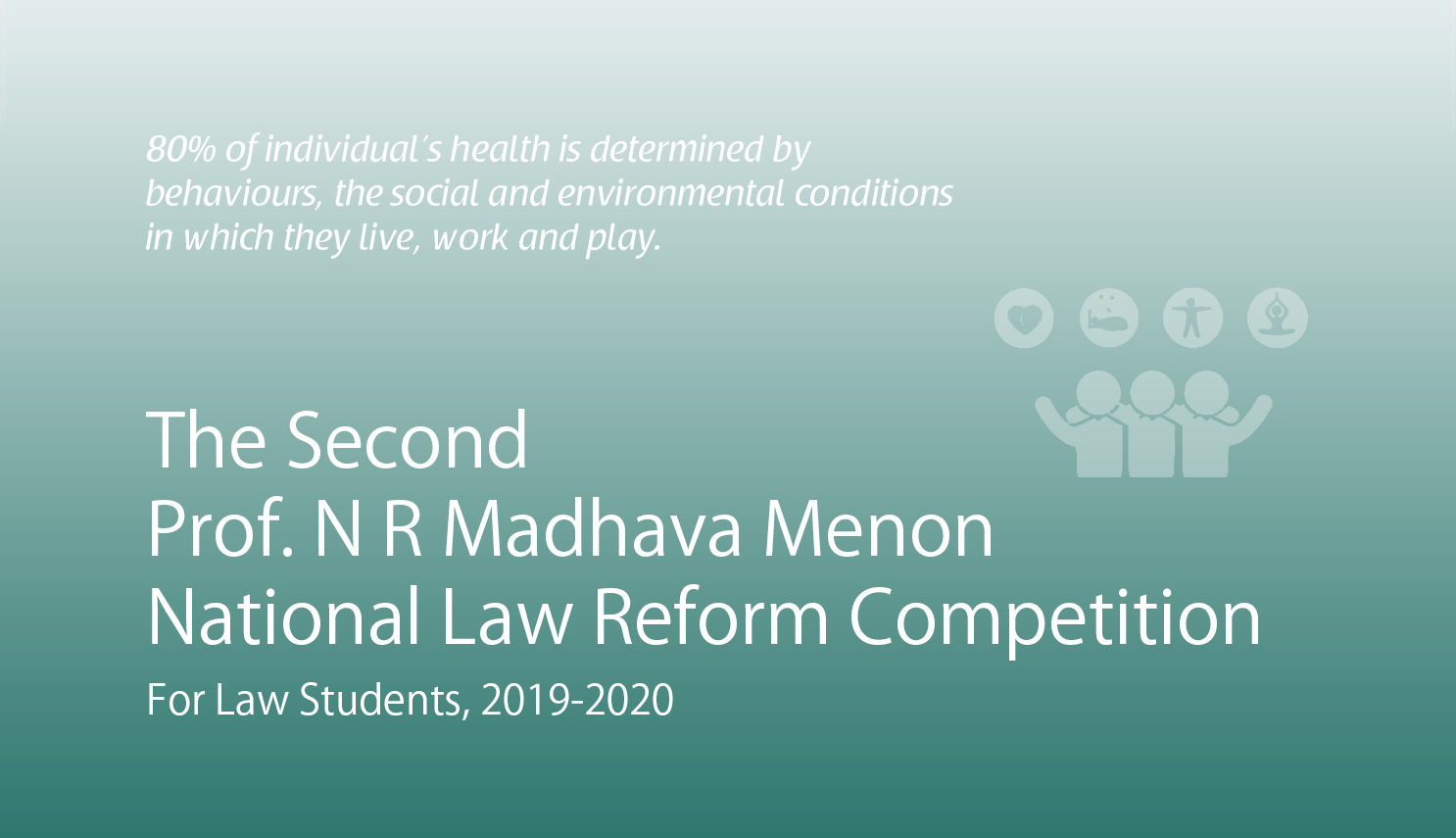

The Theme of Second Law Reforms Competition
The health sector in India at present is governed by plethora of rules, regulations, and laws that causes much confusion among the public and those involved in the healthcare sector. Also, every aspect of the health care sector is flooded by one or the other regulations and regulatory mechanism, which at times intermittently overlap in powers and functions. Health care professionals are therefore required to spend more time in complying with the rules rather than delivering healthcare services to the needy.
The right to health and healthcare though not protected as a Fundamental Right, has now been recognised as a basic right by way of judicial interpretation. However, it is included within the ambit of the Directive Principles of State Policy contained in Art. 39(e), 39(f), 42, and 47 in Part IV of the Constitution of India. The Constitution therefore, assigns predominant responsibility to States for providing health care services. In addition, in terms of distribution of sectoral responsibilities in the federal setup, health is a State subject. The State legislature is empowered to make laws with respect to public health and sanitation, hospital and dispensaries. In addition, a number of items related to health are listed in the Concurrent list and thus, the Central Government has enough scope to influence the context and the prospects in the health sector through its policies, budgetary allocation etc. Wherefore it is apparent that there exists a considerable amount of legislation both by the Central and State governments respectively, which deals with the subject matter of health and healthcare.
Complexity of the system lies in mutually contradictory regulation and authorities of central and State governments instead of being complementary to each other. In this competition, therefore, an attempt is being made to consolidate, re-state, and propose appropriate amendments to health and healthcare laws in the form of a National Health Code classifying the rights and duties of respective governments and specifying the powers and functions of implementation agencies.
Teams comprising members not more than twenty in number from the participating colleges can choose any one area of the healthcare law and are required to draft a law to form part of the proposed National Health Code. Following are the proposed themes desired to be addressed in the competition.
1) Right to health and healthcare as fundamental right
2) Regulation for medical practitioners and professional registration requirements
3) Regulation of medical and clinical establishments
4) Regulation of pharmaceutical industry and pharmacies
5) Drug research and clinical trial regulation
6) Health insurance sector
7) Right of Patients and patient complaint mechanisms
